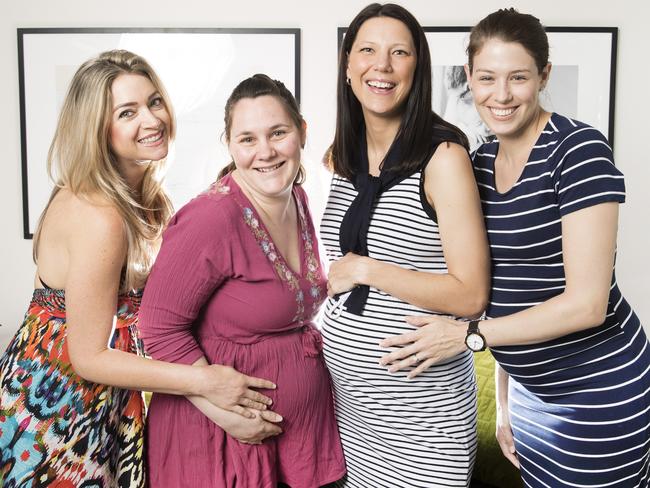Pregnancy weight guidelines spark fat-shame fears
NEW clinical guidelines for pregnant Australians have been slammed by maternity advocates, who fear some women will be unfairly stigmatised.
QLD News
Don't miss out on the headlines from QLD News. Followed categories will be added to My News.
NEW clinical guidelines for pregnant Australians will put more focus on weight, a move slammed by maternity consumer advocates who fear women will feel fat-shamed.
A summary of the updated recommendations, published today in the Medical Journal of Australia highlights that health practitioners should offer pregnant women advice on weight, diet and physical activity and the chance to be weighed at each antenatal visit.
“While the weigh-ins are not compulsory, women will feel under pressure to comply,” said Alecia Staines of the national Maternity Consumers Network.
“Women are already feeling intense pressure from jumping through hoops in the monitoring of pregnancy.
“Focusing on weight will make some feel fat-shamed and worried about every kilo gained, and using weight as a measure of health is not going to see improved outcomes.”
Ms Staines said she often heard of women being “coerced and bullied” into caesarean births because of their weight.
They were refused waterbirth options and forced to undergo additional testing.
Gold Coast midwife Amanda Bude, who teaches private childbirth classes, said guidelines should focus on body mass index rather than weight.
“A high BMI of 30-35 at the first antenatal visit can alert pregnancy carers that a woman maybe at risk for complications in pregnancy, such as DVT, gestational diabetes and high blood pressure,” Ms Bude said.

“The guidelines are aimed to provide best care for pregnant families, and nutrition and diet is a major aspect of health care that is essential.
“But jumping on a scale isn’t the answer.”
Other guideline changes include the end of routine testing for vitamin D status and routine testing for hepatitis C at first antenatal visit.
Lead author of the Medical Journal summary Professor Caroline Homer — co-program director (maternal and child health) at the Burnet Institute in Melbourne and visiting professor of midwifery at the University of Technology Sydney — believes the inclusion of weight advice will result in better health outcomes for mother and baby.
“The guidelines will enable pregnant women diagnosed with hepatitis C to be identified, and thus avoid invasive procedures that increase the risk of mother-to-baby transmission,” Prof Homer said.
“Women can be treated post-partum, reducing the risk of liver disease and removing the risk of perinatal infection for subsequent pregnancies.
“Routine testing of all pregnant women for vitamin D status and subsequent vitamin D supplementation is not supported by evidence and should cease as the benefits and harms of vitamin D supplementation remain unclear.”


